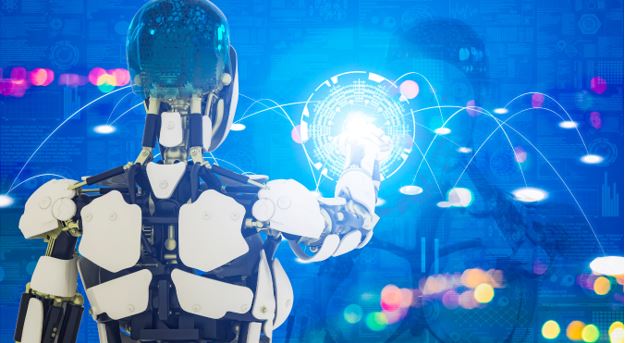The Best Use Cases of AI in Project Management
The transformative impact of AI lies in its ability to process and analyze massive amounts of data in real time, offering unparalleled accuracy and efficiency. AI reduces errors, identifies risks before they escalate, and optimizes resource allocation to ensure on-time project delivery. With capabilities like real-time monitoring, intelligent decision support, and task prioritization, AI elevates project management from a manual, time-consuming process to an intelligent, automated workflow.
Below is a detailed exploration of how AI is revolutionizing project management, with specific use cases to demonstrate its vast potential.
Use Cases of AI in Project Management
AI-Driven Task Scheduling
By analyzing project requirements, team availability, and task dependencies, AI tools can create optimized schedules that minimize conflicts and delays. These tools go beyond merely assigning tasks; they prioritize activities based on deadlines and critical dependencies, ensuring that essential milestones are met without disruption.
Tools like GetGenerative.ai streamline complex processes like creating plan estimates and proposals, integrating them seamlessly into project workflows.
Resource Allocation Optimization
Efficient resource allocation is critical for the success of any project, and AI excels in this domain. AI-powered platforms analyze factors such as team member skills, availability, and project timelines to allocate resources effectively.
For example, in a software development project, AI can assign tasks to developers based on their expertise, ensuring that the right person is handling the right job. This targeted allocation minimizes resource wastage and enhances overall productivity. Additionally, AI tools continuously monitor resource usage, identifying areas of underutilization or overburdening, and recommend adjustments in real time.
Predictive Risk Management
By analyzing historical project data, AI can detect patterns and trends that indicate potential risks, such as delays caused by supply chain disruptions or budget overruns due to unforeseen expenses. AI-driven tools also simulate various project scenarios, enabling managers to prepare contingency plans.
For example, in construction projects, predictive analytics can forecast delays due to weather conditions and suggest alternative schedules to keep the project on track.
Enhanced Decision-Making Through Predictive Analytics
AI’s ability to deliver predictive analytics is a game-changer for decision-making.
For instance, AI can predict whether a project is likely to exceed its budget or miss deadlines, allowing managers to take corrective actions proactively. These insights are particularly valuable in complex projects with multiple variables, where traditional methods often fall short.
Improved Collaboration and Communication
AI-driven tools enable effortless collaboration and effective communication among team members, no matter where they are located geographically. Virtual collaboration tools equipped with AI can automate meeting notes, organize project files, and even provide language translation for global teams.
These tools provide all team members with real-time updates, ensuring they stay informed and aligned with the project’s objectives. AI chatbots also play a significant role in communication, addressing team queries, sending reminders, and maintaining schedules without manual intervention.
Streamlined Workflow Automation
AI enhances efficiency by streamlining workflows, automating routine tasks like sending notifications, adjusting schedules, and managing approvals. For instance, in the healthcare sector, AI systems automate appointment scheduling and patient record updates, freeing up administrative staff to focus on more critical tasks.
Similarly, in marketing, AI tools automate content scheduling and campaign tracking, ensuring that teams can concentrate on strategy and creativity.
Quality Assurance and Control
AI tools have transformed quality assurance in project management by automating the detection of anomalies and ensuring that standards are consistently met. In software development, for instance, AI algorithms can identify irregularities in code or performance metrics, enabling teams to address potential issues before they escalate.
Similarly, in manufacturing, AI-powered systems continuously monitor production lines, identifying defects and ensuring that products meet quality standards. This proactive approach to quality control minimizes delays and reduces costs associated with rework or recalls.
AI for Financial Forecasting and Budget Management
Budgeting is often one of the toughest parts of project management, but AI eases the burden by offering precise financial forecasts. By analyzing historical spending patterns, resource utilization, and market conditions, AI tools provide precise budgetary estimates. Additionally, AI tools continuously monitor live financial data, identifying potential overruns and proposing cost-effective solutions.
For example, an AI-powered platform might identify inefficiencies in resource allocation and recommend reallocating funds to more critical areas, ensuring projects stay within budget while maximizing value.
Scalable Workflow Customization
With AI, project managers can tailor workflows to meet the specific demands of their projects, ensuring better alignment and efficiency. By analyzing team dynamics and project objectives, AI tools suggest tailored workflows that enhance efficiency.
For instance, in agile projects, AI platforms can dynamically adjust workflows based on sprint outcomes, ensuring that subsequent tasks align with the project’s evolving goals. This flexibility is particularly advantageous for large-scale projects that involve diverse teams, where conventional workflows may fail to deliver the needed coordination.
Advanced Risk Mitigation Strategies
Beyond risk identification, AI provides actionable strategies to mitigate potential issues.
For instance, in a marketing campaign, AI can analyze audience engagement data to predict underperforming strategies and suggest alternative approaches. In the construction industry, AI might recommend supplier changes to avoid material shortages based on real-time supply chain data.
Customer-Centric Project Management
AI enhances customer-centricity by analyzing feedback and aligning project outcomes with client expectations.
For instance, sentiment analysis tools powered by AI can analyze customer feedback and reviews to uncover actionable insights for improvement. This enables project managers to make adjustments that increase client satisfaction and ensure that project deliverables exceed expectations. In the telecommunications sector, AI tools analyze customer data to tailor services, improving retention rates and overall satisfaction. Also, Read – Salesforce CRM Implementation With AI
AI in Multi-Project Management
Managing multiple projects simultaneously can be overwhelming, but AI simplifies this process by providing a centralized dashboard with real-time insights. These platforms track the progress of all active projects, highlighting dependencies, risks, and resource conflicts. By offering a comprehensive perspective, AI enables managers to make well-informed decisions, refine resource allocation, and prioritize tasks across multiple projects.
For example, in the software industry, AI can identify overlapping resource needs and suggest adjustments to avoid delays.
AI-Powered Learning and Development
AI is playing a significant role in upskilling project teams by identifying skill gaps and recommending targeted training programs. AI tools, by assessing team performance, pinpoint areas for development and suggest relevant training or learning resources.
For instance, in education, AI-driven learning management systems assess student progress and recommend tailored courses to enhance learning outcomes. Similarly, in corporate settings, AI platforms recommend skill development programs aligned with organizational goals.
Industry-Specific AI Applications
In construction, AI predicts delays and optimizes resource allocation by analyzing weather patterns, real-time sensor data, and historical project metrics. This ensures on-time project delivery and minimizes costs.
In healthcare, AI automates administrative processes, schedules appointments, and optimizes resources, enabling professionals to dedicate more time to patient care.
In retail, AI refines supply chain operations through precise demand forecasting, better inventory management, and supplier analysis to improve operational performance.
In marketing, AI simplifies campaign management by automating scheduling, tracking performance, and delivering personalized interactions, allowing teams to focus on creativity.
In manufacturing, AI elevates production processes through predictive maintenance, quality assurance, and streamlined supply chain operations, cutting downtime and costs.
Conclusion
AI is transforming project management across industries by automating workflows, improving decision-making, and maximizing resource efficiency. Its capabilities to forecast risks, streamline operations, and offer real-time insights make it indispensable for modern project managers. Although challenges remain, the advantages it brings solidify its position as a cornerstone of future-ready project management.
FAQs
1. How does AI improve project management efficiency?
AI automates repetitive tasks, provides real-time insights, and optimizes resource allocation, allowing project managers to focus on strategic goals.
2. Which industries benefit the most from AI in project management?
Industries such as construction, healthcare, retail, marketing, and manufacturing see significant advantages from AI-driven project management tools.
3. What are the biggest challenges in implementing AI for project management?
Data privacy, high implementation costs, and the need for team training are some of the major challenges.
4. Can AI replace project managers?
No, AI complements project managers by handling operational tasks and providing insights, but human leadership and decision-making remain irreplaceable.
5. Is AI suitable for small businesses?
Yes, many scalable AI tools cater to small businesses, providing cost-effective solutions to improve project management efficiency.




